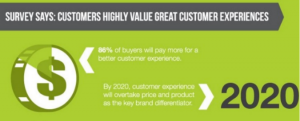
Startup communities are booming around the world. But small differences can make for difficult conversations.
When Mike Judge described his fictional creation, the HBO show Silicon Valley, with its send-up of startup gurus, coding nerds, and Kid Rock-hosted launch parties, it sounded more like a documentary. “In a way, you just televise (reality),” he told Fast Company. “Then you get credit for satire, when sometimes all you’re doing is putting it on TV.”
As the show demonstrated, Silicon Valley can be a foreign culture even to Americans. To international startups launching in the U.S., some of these same aspects of Silicon Valley culture can be downright alien.
The common practice, for instance, of promoting a startup before it technically exists—when it’s nothing more than a landing page—strikes some international startups as particularly odd. “In Korea, the press only start to pay attention when startup makes much money or generate meaningful result,” explains John Oh, a Korean entrepreneur who is preparing to launch his video startup, Alive, in the U.S. “On the other hand, I witnessed that in the U.S., a new startup succeeds in generating news as long as it is considered innovative.”
Part of the hesitancy to broadcast a business before it’s successful, Oh says, is that Silicon Valley’s enthusiasm for failure (there’s even a conference that uses the tagline “fail forward”) is rather unique. Oh tells the story of an American friend who started a company that is still in prototype stage and hasn’t generated any revenue for the last three years. “His service is considered as a failure,” Oh says. “Nevertheless, there is continuous stream of funding, and he is living a good life in Palo Alto with his wife and a kid. He is able to continue ideation and development without struggling. I was so envious about the startup ecosystem in Silicon Valley, which offers opportunities to try again after failure. Korean culture is not generous about failure. Once you fail, you’re very often forced to change your path and pursue something else.”
Jeong-A Kim, who recently worked at a PR agency called fionabae that specializes in bringing Korean startups to the U.S., says that at times this difference between the cultures could make her job tricky. “Their response is pretty much the same: We’re not ready. It’s not my camera-ready moment, so I don’t want the media to know,” she says. “I feel like the American startups are like, ‘We’re looking for funding!’ And the Korean startups are like, ‘No, no, we’re not a real business yet.’”
It’s not just Korean startups that can find this odd. Elliot Tomaeno, the founder of Astrsk PR, works with startups founded outside of the U.S. on their U.S. launches, which he says makes up about 30% of his business. He’s found the Silicon Valley practice of trumpeting your startup ahead of its actual success seems odd to most Europeans, too. “If you fail at something in Europe, it’s not a badge of honor, and try this and try that and you will find success,” he says. “You feel like you’re shaming your family. They don’t want to talk about them being in the U.S. until they find success, which is a hard chicken-and-egg situation.”
Peter Arvai, who cofounded presentation software company Prezi in Hungary, remembers being surprised at how much startups used marketing for purposes beyond attracting consumers. “I couldn’t believe when I came to San Francisco and I saw these billboards for companies that I thought were small B2B companies at the time, like Box,” he says. “It struck me that building a brand was important, and that was actually a way to attract talent. In Budapest, I built a team with friends of friends.”
Courtney Boyd Myers, who founded a consultancy called audience.io that helped U.K. startups launch in the U.S. and vice versa (before switching focus to helping U.S. startups launch in the U.K. only), says the speed at which American entrepreneurs do business, not only their seemingly premature marketing efforts, can be a bit of a surprise to some of her British clients. “They are like, ‘Holy shit, you can get your contract signed at a coffee meeting,’” she says. “In the U.K., it takes a few meetings. We have an introductory talk, I know their children’s names, and THEN we sign a contract.”
To Liron Damri, a Tel Aviv-based entrepreneur who cofounded a fraud protection company called Forter, the biggest surprise about Silicon Valley was how much information everybody shared with each other. When he was negotiating the sale of a previous startup to PayPal, he remembers this being an issue. “We came in at first and said, ‘We have something that works better than what you have, and we won’t tell you anything about it.’” He was worried about sharing his company’s IP, but he feels he came off as asking PayPal to invest in a “magic box.” He attributes this difference in culture to Israel’s mandatory military training. “If you’re coming from the air force, you might have to collaborate with another unit, but you don’t ask too many questions,” he says.
It’s not as though any of these differences create a solid barrier to entry for any of these startups. Arvai, for instance, says he doesn’t think he could have started Prezi from California. Being in Budapest allowed him to think outside of the echo chamber and create a product for explaining things in depth at a time when Valley startups were focused on chopping information into bite-sized bits, like tweets or Instagram photos.
And ultimately Prezi became very successful in the U.S. It recently raised $57 million from U.S. private equity firm Spectrum Equity and its existing investor, Accel Partners. Startup communities across the globe are more connected to each other than ever, and they are becoming more similar all the time.
(355)
Report Post



